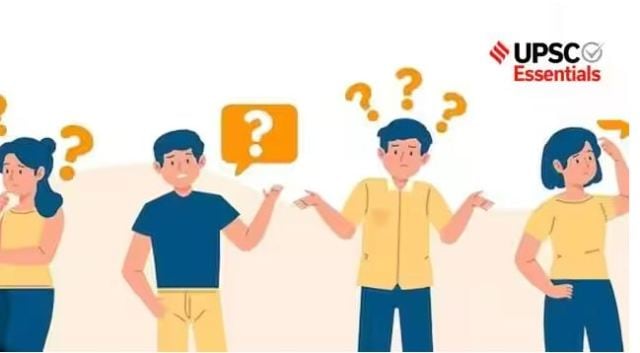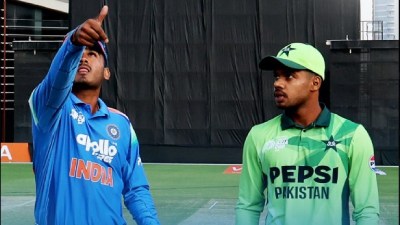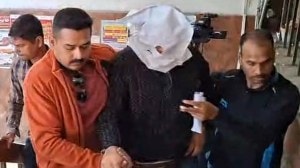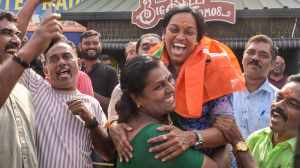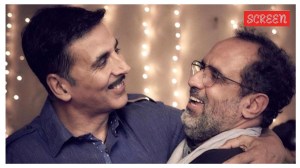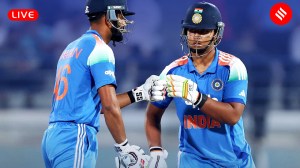We will take up more questions too. You can send your queries at manas.srivastava@indianexpress.comor join Telegram: The Indian Express UPSC Hub or ask me Live! at 8 PM on August 2.
QUESTION 1
How philosophy guides us to ethics? Discuss with reference to western philosophy.
QUESTION 2
CASE STUDY
Both Raghav and Seema, husband and wife, are senior IAS officers posted in a very responsible position in Delhi. Raghav and Seema have a good track record in their services in the past and are very famous on social media. They are also dog lovers and have a dog at home. Busy lives and work pressure do not allow them to have leisure time and as they are quite famous, they do not have privacy, so they avoid crowded public places.
A recent incident at Delhi’s sports stadium caught the nation’s attention. Media reported that the stadium was cleared by sending the athletes early so that the IAS officer-couple can walk with their dog on the tracks. After this report, the IAS officers were transferred at a ‘punishment’ posting and the Delhi government extended the time for the athletes in the stadium to 10 pm.
Story continues below this ad
(a) What is the issue that the case study wants to address?
(b) Do you agree with the corrective measures taken against the officers? What should be the measures taken so that these incidents are not repeated?
THOUGHT PROCESS
You may enrich your answers by some of the following points
QUESTION 1
How philosophy guides us to ethics? Discuss with reference to western philosophy.
Introduction
Story continues below this ad
There can be many ways to start a case study. One of the ways that a candidate may choose is by putting forward general statement revolving around the issue. For example:
The world offers complex situations and ethics helps us to deal with those situations in a most desired manner. Different philosophical approaches to ethics can help people to make a sound, ethical decision.
Body
As far Ethics is concerned, it has been referred to by three eminent schools in Western philosophy. The first school of thought was led by Aristotle who holds that virtues are those values or dispositions which benefit the possessor, as well as the community at large. Aspirants should make a note that the whole concept of civil service advocates the same as it deals with virtues of justice, probity, trust, and so on. Here, one should not confuse between values and
virtues. What we value is expressed through virtues. For example, the values of Justice can be practiced through just behaviour.
The second school of thought is led by Immanuel Kant, which makes the concept of duty central to morality. Here, human beings are bound from a knowledge of their duty as rational beings, and to obey the categorical imperative to respect other rational beings with whom they interact. The moral act or duty in itself is the guiding force of ethical decision-making without thinking too much about the results of the act. Kant believed that man should not be treated as a mean for achieving desired ends.
Story continues below this ad
The third is the Utilitarian viewpoint which asserts that the guiding principle of conduct should be the greatest happiness (or benefit) of the greatest number. The theory of Utilitarianism is based on the ideas of Jeremy Bentham and John Stuart Mill. It takes the perspective of the costs and benefits of ethical choices. According to it, any decision must be evaluated from the perspective of how much good or harm it causes and should consider the effects on all parties. In other words, the “Greatest good for the greatest numbers”. It means to promote the idea of a welfare state and thus promote the welfare of all persons by minimizing harm and maximizing benefits.
JUST FYI
Ethics are generally categorized into two categories — Normative and Descriptive.
Normative ethics is a preferred or idealistic approach to decision-making when there are certain standards present to define and decide the righteousness and wrongness of any act.
On the other hand, Descriptive Ethics is that kind of ethics when one tries to understand people’s moral beliefs through empirical investigation. It is like understanding those practical aspects of any ethical investigation or moral consideration.
Conclusion
Story continues below this ad
Since a lot of space will be covered by body of the answer, you may write a short conclusion speaking about bureaucrats. For example:
QUESTION 2
Both Raghav and Seema, husband and wife, are senior IAS officers posted in a very responsible position in Delhi. Raghav and Seema have a good track record in their services in the past and are very famous on social media. They are also dog lovers and have a dog at home. Busy lives and work pressure do not allow them to have leisure time and as they are quite famous, they do not have privacy, so they avoid crowded public places.
A recent incident at Delhi’s sports stadium caught the nation’s attention. Media reported that the stadium was cleared by sending the athletes early so that the IAS officer-couple can walk with their dog on the tracks. After this report, the IAS officers were transferred at a ‘punishment’ posting and the Delhi government extended the time for the athletes in the stadium to 10 pm.
Story continues below this ad
(a) What is the issue that the case study wants to address?
(b) Do you agree with the corrective measures taken against the officers? What should be the measures taken so that these incidents are not repeated?
The issues: VIP culture versus public interest.
Bureaucratic privileges versus code of ethics.
The problems:
1. The history of VIP culture in our country goes back to the British era. The masters enjoyed power and privileges over common citizens or the natives.
2. The undue bureaucratic privileges and exemptions may lead to inequality and unfair use of limited resources in the country. Such privileges cost a lot of trouble to common citizens.
Story continues below this ad
3. Such incidences create a trust deficit between common citizens and the administration.
4. These incidences bring a bad name to the whole system. It becomes a big question of integrity.
5. There are attitudinal problems in some civil servants linking their service to status. Thus, the VIP culture versus public interest also becomes the issue of status symbol versus public interest.
The measures and solutions:
1. Lead by example with a sense of responsibility: It is a must for leaders and administrators to lead by example. Many a time a bureaucrat is seen as a role model for society. His or her public and private life has a very thin boundary. Thus, a sense of responsibility should be realized while taking any action in public or private life.
Story continues below this ad
2. Conscience should guide: There can not be rules and regulations to guide every action. In the absence of any such laws, rules or regulations, conscience should guide a bureaucrat’s decision both in public and private life.
3. The VIP culture must end: The VIP culture of privileges and exemptions has no place in a democratic society. There is a definite need to end the mindset of VIP culture in civil servants and to strengthen the culture of EPI or every person is important.
4. Attitudinal change in civil servants required: The values of service, integrity, etc. should be the foundational values of a civil servant. He or she must understand that the citizen-centric governance model of which he is a part should encourage inclusivity, equality, democracy, and welfare of the common man. He or she cannot enjoy privileges and exemptions.
5. Reward and punish- The government of the day should take action after an inquiry against the officers in cases of violation of the code of conduct. They should be held accountable for their deeds. At the same time, the government should also reward those who have done exemplary work in their service. But do ponder on the words ‘punishment postings’. Do you think it is right to use these words?
6. Media and citizens- The media as the fourth pillar of democracy should be vigilant and report such incidences without any biases so that such events are not repeated. The citizens too should be aware of their rights.
Beyond this case:
Many events and incidences in the past highlight the seriousness of the issue of the VIP culture. The following are some of the examples:
1. The Supreme Court’s first strike on VIP culture came in 2013 when it stated red beacons on government cars with “Raj mentality” and ruled that red beacon lights on vehicles can only be used by people listed as “high dignitaries”, that too only when they are on duty.
2. AIIMS scrapped its decision to open a special counter for VIP cases. (2017)
3. The Government banned the use of red and blue beacons equating them to the symbols of VIP culture.
(Source: UPSC Essentials – Case study of the week- IAS officers with the dog and ‘VIP’ culture in bureaucracy by Manas Srivastava)
Post your inputs and answers to points to ponder in the comment box below and engage with other aspirants too. All the best!
Previous Mains Answer Practice
UPSC Essentials | Mains answer practice: GS 4— Ethics, Integrity & Aptitude (Week 5)
UPSC Essentials : Mains answer practice: GS 4 —Ethics, Integrity & Aptitude (Week 2)
(The UPSC Essentials Indian Express is now on Telegram- Indian Express UPSC Hub. Click here to join our YouTube channel and stay updated with the latest updates.
Note: Catch the UPSC Weekly Quiz every Saturday evening and brush up on your current affairs knowledge.)
Share your views, answers and suggestions in the comment box or at manas.srivastava@indianexpress.com

